Meet our Early Career Ocean Professionals: Evonne Tan
Evonne Tan is from Malaysia and currently a UNESCO intern who supports the regional node of the ECOP Programme for Asia. She is co-leading the development of a national ECOP network in Malaysia. Evonne graduated from Universiti Sains Malaysia in Marine Pollution and Toxicology and will be starting a PhD degree in January ’24 at City University of Hong Kong (Hong Kong).
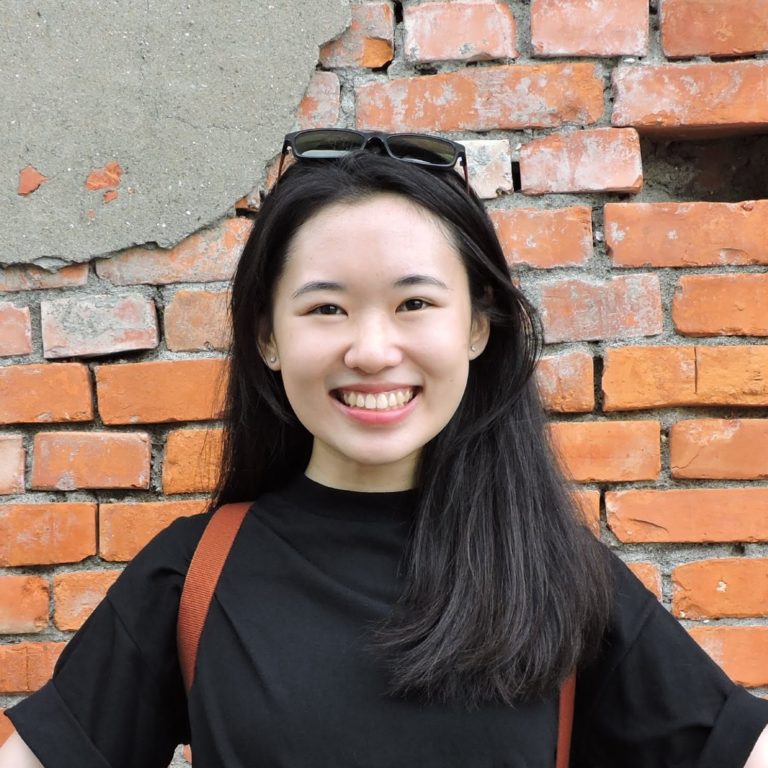
1. Hi Evonne! Can you tell is what was the Ocean’s influence on you growing up, what made you decide to want to work with the Ocean?
Everything was a blessing in disguise! To be honest, I did not have that ‘ocean-calling’ moment when I was young nor the opportunity to learn about the environment/ocean. I spent most of my time in tuition, drawing and piano classes after school (just like most ordinary Asian students haha). My passion for the ocean only developed when I needed to choose a major in the university. Because my results were not up to the required standard to study popular courses, I stumbled across Marine Science (one of the remaining courses that could secure my admission) and decided on it after getting excited from researching.
Although it took a slight turn when a college advisor dissuaded me that ‘Girls are not strong enough to handle oceanographic works’ and I came out of the room completely disheartened but thankfully, my dad ‘picked up’ my shattered pieces and told me to just go for it and show them what I’ve got (Love you papa)! So, my passion for ocean science grew exponentially along with my academic journey as I realized that the community in my country is very lacking in exposure and knowledge about the ocean and it’s link to our own well-being and health, despite being a maritime nation.
These gaps were the root cause of the existing environmental and waste management issues in Malaysia, with one of the outcomes being Malaysia on the global list as the top plastic waste contributor a couple of years ago.
These experiences have all fuelled me to always try to do better; to educate society and promote an ocean-loving nation that understands our environment.
2. How does your work fit into the UN Decade of Ocean Science?
My ultimate goal in the ocean field is to maximize the use of my knowledge to help the marine environment, particularly in water quality, and also share it with society. In my academic work, I focus mainly on ecotoxicology where I study chemical pollutants. I’m interested in the interaction and effect of chemical pollutants (e.g., heavy metals, microplastics and emerging pollutants) on the marine environment. My work outside academic life tends towards tackling ocean literacy. As a co-founder of Plastic Vibes, our initiative aims to enhance ocean literacy among the young generation in Malaysia. We also organize monthly beach clean-ups involving young and working adults, which is another interactive way to educate different societal levels on ocean sustainability. Our team is constantly exploring ways to involve different societal levels to raise marine environmental awareness and knowledge. In general, I strive to protect the ocean and its resources from marine pollution while engaging in knowledge sharing to raise societal awareness.
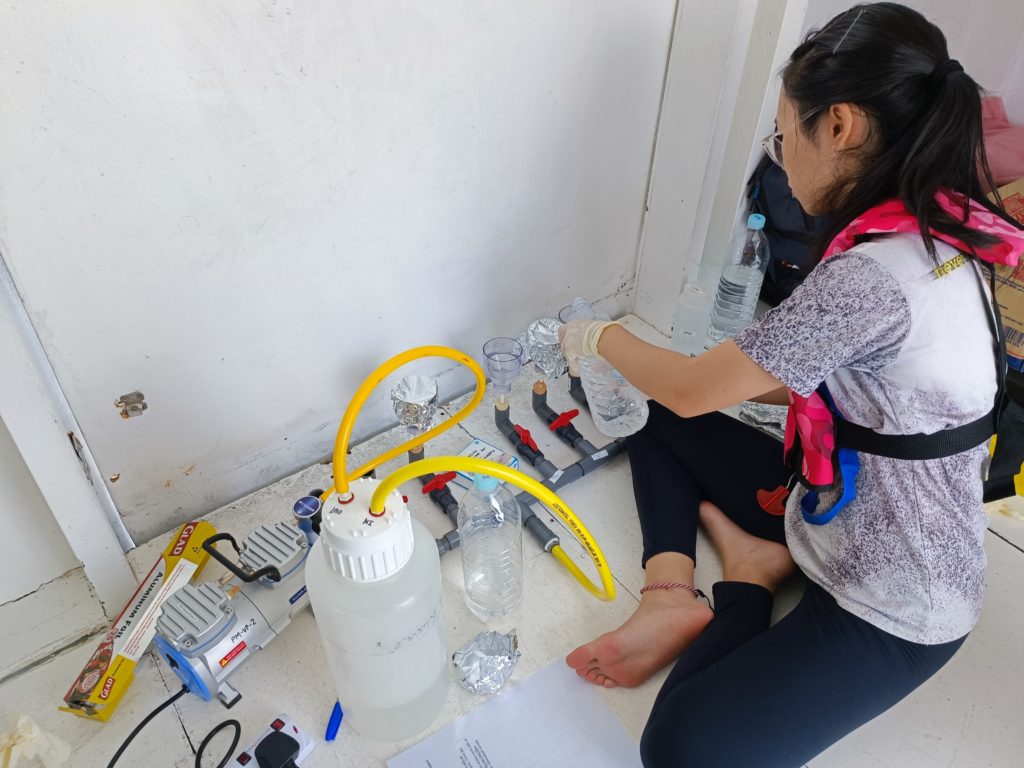
Evonne, hard at work on board a one-week field sampling along the northern coast of Malacca Strait. The team were collecting biogeochemical and optical variables to develop regional remote sensing algorithms.
3. Why is this work so important to you, and how does/can the ECOP Programme support this?
My encounter with the ocean is something I would never trade for anything in this world. I find working with the ocean impeccably meaningful and rewarding. This is because whenever I learn or discover something new about the ocean, I get to give back to the ocean through research and the society via community work. The best part of all would be sharing my knowledge and experience to encourage others to contribute to saving the ocean. No doubt oceanographic career can be occasionally exhausting but I see every challenge as an opportunity to learn and discover the ocean. There is still so much more to be done!
The existence of the ECOP Programme itself is empowering because it creates a sense of belonging to support young researchers like me as we navigate ourselves into the field of ocean science. With the ECOP Programme, I’m looking forward to making new connections with other inspiring individuals and striving to become a better version of myself. I hope my version of the story can inspire people, especially girls from all around the world.
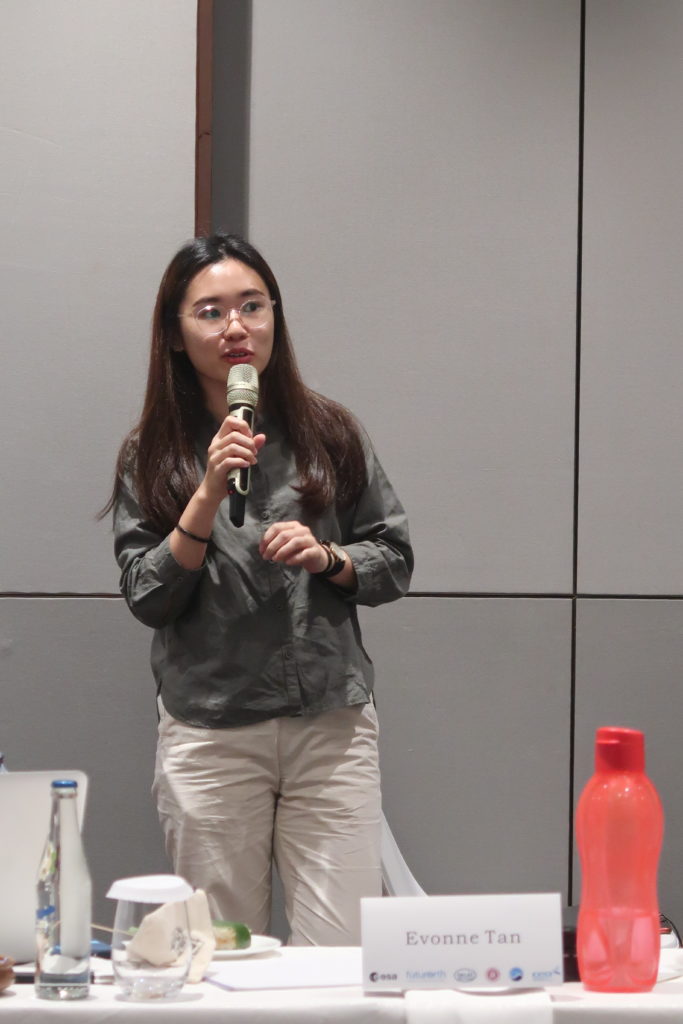
Evonne at the ‘Expanding earth observing data to address climatic changes in the marine biosphere of the northwest Pacific & Indo-Pacific regional seas’ workshop in Bali, organized by IMBeR International Project Office China.
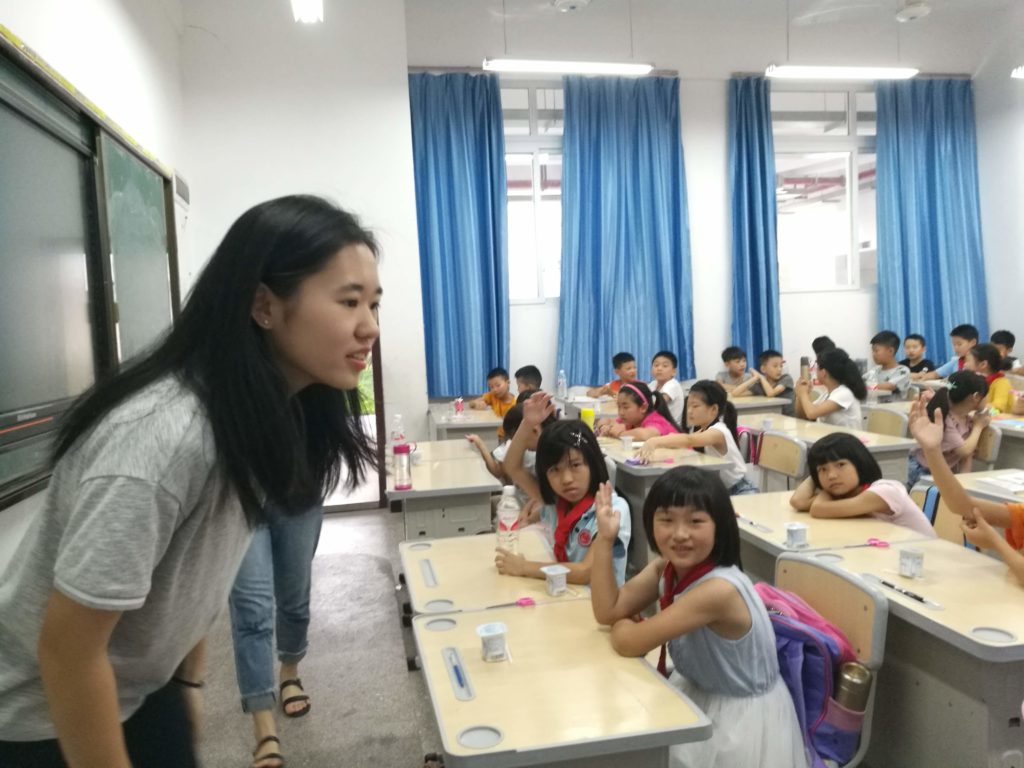
Evonne performing her duties as during an AIESEC global volunteer program. She was based in Chongqing (China) and the photo shows a Q&A session with the children during an ocean literacy class.
